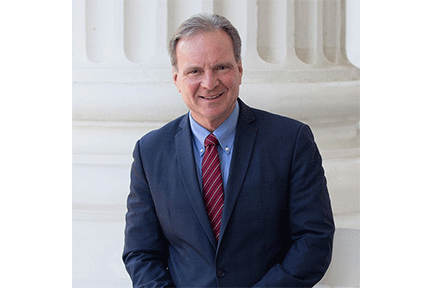Approximately 15,000 high school seniors experiencing homelessness would receive direct cash assistance to help them advance to higher education or employment, under a bill introduced Tuesday by State Senator Dave Cortese (D-San Jose).
SB 333 would establish the Success, Opportunity, & Academic Resilience (SOAR), a guaranteed income pilot program. The funding would be eligible to all 12th grade unhoused students who lack a fixed, regular, and adequate nighttime residence.
“We must stop graduating 15,000 high school students into homelessness each year,” said Senator Cortese. “These payments, made with no-strings-attached, enable students to cover basic needs so they may take crucial steps toward college or career.”
An estimated 270,000 students are experiencing homelessness across California’s K-12 school system, according to a 2020 report by UCLA’s Center for the Transformation of Schools. The number grew by nearly half over the past decade, and is presumed to have increased even higher amid the pandemic. Furthermore, a recent survey found that more than 90 percent of unhoused youth respondents described a career goal that required education beyond high school, but only 16 percent believed they would be able to attend or graduate college within the next five years.
“Inflation, rising student debt and a state-wide housing crisis are only a few of the many issues facing young people as they enter the workforce or go off to college. But for the 15,000 California high school seniors experiencing homelessness, just getting on a promising path is nearly impossible,” said Teri Olle, California Campaign Director of the Economic Security Project. “We stand with Senator Cortese in establishing a guaranteed income for students experiencing homelessness. Helping young adults during the crucial transition from high school to college or career allows them to clear away obstacles and position themselves to create the life they want.”
SB 333 is a reintroduction of SB 1341 (2022), which would have provided direct cash assistance payments of $1,000 monthly to approximately 15,000 students. Direct cash payments from SB 333 would be awarded from April to August 2024.
Senator Cortese is committed to giving vulnerable populations the tools to improve their lives through guaranteed income. In 2020, Senator Cortese, then a Santa Clara County Supervisor, helped create Santa Clara County’s first-in-the-nation universal basic income program to serve transition-age foster youth.
In 2021, that Santa Clara County pilot program was scaled statewide under Senator Cortese’s SB 739. That legislation, known as the Universal Basic Income for Transition Age Foster Youth Act, was incorporated into the 2021-22 State Budget as a $35 million first-of-its-kind investment called the “California Guaranteed Income Pilot Program.”
In November 2022, the California Department of Social Services announced plans to begin awarding the first $25 million in grants to seven pilot projects promoting guaranteed income across the state. The awards consisted of monthly direct cash payments of up to $1,200 to at least 1,975 Californians, including transition age foster youth and pregnant women.
Co-Authors of SB 333 include Senator Angelique Ashby, Assemblymember Matt Haney, Assemblymember Alex Lee, Assemblymember Evan Low, and Assemblymember Gail Pellerin.


3 comments
Throwing taxpayer money at a problem seems to be the knee-jerk response of California’s liberal Dems. I’m not sure that his proposal is the best solution here.
So what is it then? Because being homeless and you haven’t even graduated HS yet you already have your back against the wall. These are not foster youth, these are not kids with a familial support system. These are the kids that fell through every crack and have no one and nothing. So what do you propose is the answer?
I’m suggesting that there may be better ways. Provide housing or foster care. In other words, provide needed support in kind, not in cash. The average 17 year old is not adept at managing money, probably less so if they are homeless since, as you say, they lack a familial support system. Stuffing monthly cash h in their pockets will not solve the problem.
Comments are closed.